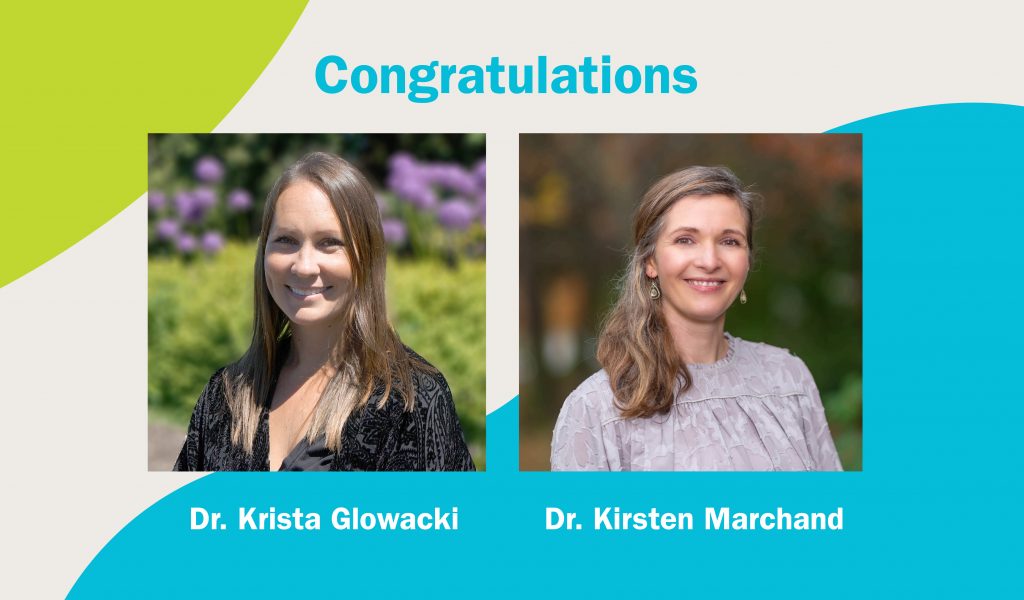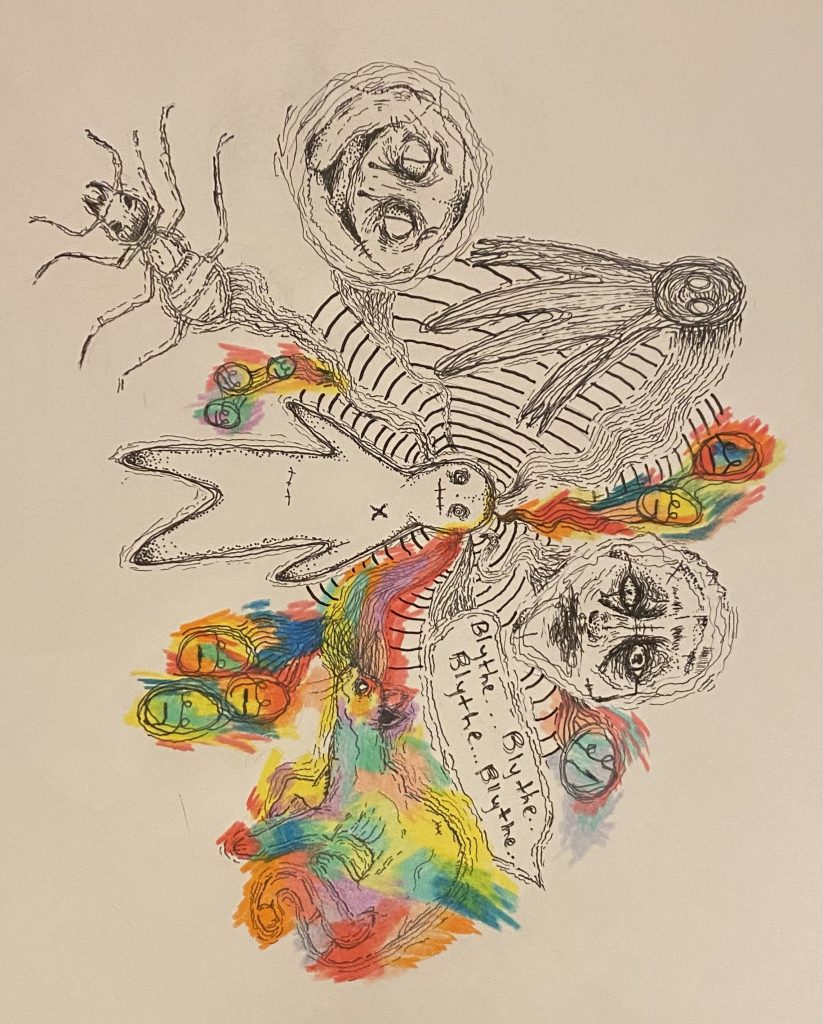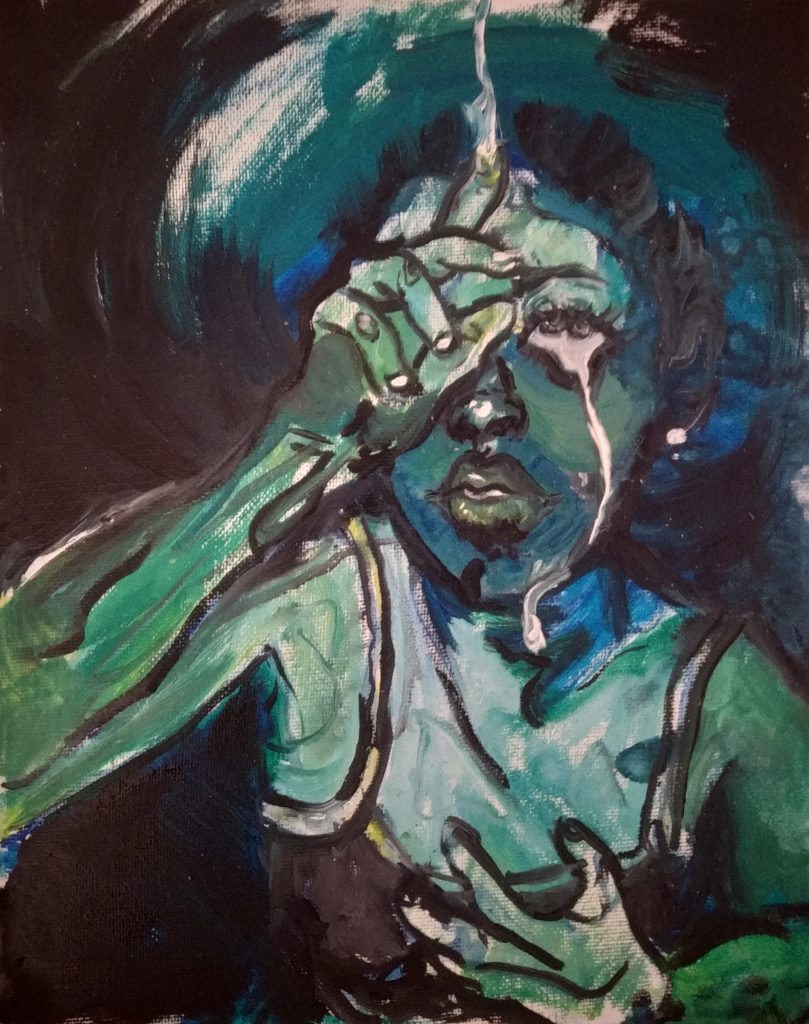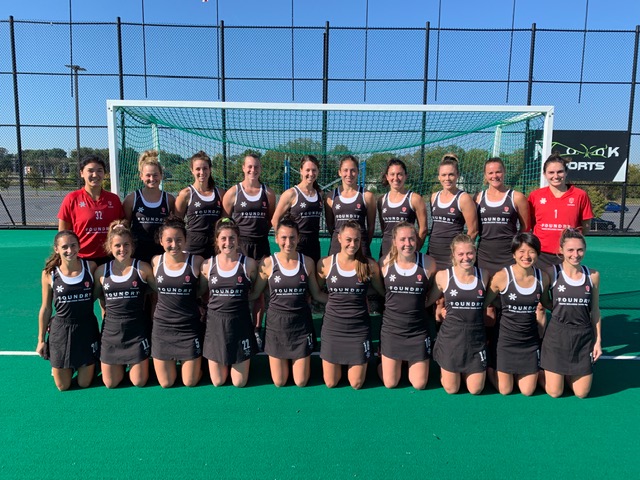Foundry’s research team receives two Michael Smith Health Research BC awards

On September 9th, 2021, the Michael Smith Health Research BC (Health Research BC) named Dr. Kirsten Marchand and Dr. Krista Glowacki among the 86 recipients receiving the 2021 Scholar and Research Trainee awards.
The Health Research BC Research Trainee program supports health researchers in the training phase of their research career to enable career development and the long-term success of the BC health research landscape. Dr. Kirsten Marchand and Dr. Krista Glowacki are currently training under the supervision of Foundry’s Director of Research, Dr. Skye Barbic. Learn more about their exciting work with Foundry below:
Dr. Kirsten Marchand
Since 2016, approximately 1,200 youth in BC between the ages of 15 and 24 have died from opioid-related overdoses.
The main goal of Dr. Marchand’s study is to determine how to best help youth who use opioids. To meet this objective, youth, parents/caregivers and service providers will be engaged in a research study, which will explore priorities for opioid use treatment delivery and determine how to best define the benefits of opioid use treatment for youth.
From these findings, service providers and policy makers can deliver opioid treatments in a way that will better meet youths’ unique needs. It will also support future researchers to make sure they are studying what matters most to youth.
“Through my joint appointments at Foundry, the Centre for Health Evaluation and Outcome Sciences, and the University of British Columbia Faculty of Medicine, this award provides a tremendous opportunity to expand my mixed-methods health services research and implementation science skills,” says Dr. Marchand. “This research is essential to inform the co-design and implementation of youth-centered care into substance use treatment services in British Columbia.”
Dr. Krista Glowacki
In Canada, mental health and substance use (MHSU) disorders affect 25% of young people aged 12 to 24 years. The recent global pandemic has exasperated this. Dr. Glowacki’s study will explore how physical activity programming can be offered as a health service through Foundry centres which can be used to manage mental and physical health.
This will be done by using photographs to understand youth needs; developing a working group to consider how to add a service; and, co-creating a physical activity program.
This work will be done collaboratively with diverse youth, service providers and researchers. Dr. Glowacki’s long-term goal is to improve the quality of care and the health of young people with MHSU disorders living in BC, Canada and across the world.
“I am honoured to receive the Michael Smith Health Research BC/Centre for Health Evaluation & Outcome Sciences Research Trainee award to continue to work with Foundry, Dr. Barbic, the research team, and young people”, notes Dr. Glowacki. “Similar to many teenagers today, I dealt with many health challenges. However, through the power of physical activity I was able to take control to manage my mental and physical health, and I’m excited to explore how young people in BC can do the same.”
Congratulations to Dr. Kirsten Marchand and Dr. Krista Glowacki on their awards! With funding support from Health Research BC, we’re excited to see the impact of their research in furthering the delivery of Foundry services as well as contributing to the success of BC’s health research system.
Since our inception in 2015, Health Research BC was one of several organizations who provided critical funding to Foundry. This year, in celebration and honour of Health Research BC’s 20th anniversary, Foundry extends our deep gratitude and appreciation for our continued partnership with the Foundation.
Learn more about Health Research BC Research Trainee program.
Beauty of Life in Psychosis (BLIP): Challenging the definition of “normal”
In *our previous article, Discovering the Beauty of Life in Psychosis, we introduced the first ever BLIP cohort and shared some of the amazing art created by our peers in the group. We’re excited to share some of the insights and artwork from the second cohort of BLIP, which ran over the course of this summer.
First, a quick recap: what is Beauty of Life in Psychosis (BLIP), anyway?
Beauty of Life in Psychosis (BLIP) is an art and creativity group for young people who self-identify as experiencing psychosis, hearing voices, seeing visions and/or having unique beliefs (VVUB). BLIP is a peer-led group, which means that the facilitators (that’s us – Rory and Anne!) have had similar experiences.
The group was born out of a simple idea: that we deserve safe(r) spaces to socialize, be part of a community, talk about our experiences and express ourselves creatively, all without fear of judgment.
Now, in partnership with Vancouver Coastal Health’s Consumer Initiative Fund, Foundry Virtual BC and Early Psychosis Intervention BC, as well as support from The Paint Spot, we’ve been able to host two successful cohorts – including providing all group members with free art supplies.
The goal of BLIP
The goals of BLIP are to build a sense of belonging, normalize talking about VVUB/psychosis and make space to explore and express the personal meaning of our experiences.
In developing BLIP, it was important for us to recognize that while VVUB/psychosis can be confusing, frightening and difficult, it can also be a “normal” part of life with all the complexity of any other parts of life. VVUB/psychosis can also be funny, annoying, boring, interesting, inconvenient, exciting, frustrating, pleasant, ugly and/or beautiful.
We want to treat VVUB/psychosis as an experience that is part of the unique and valuable perspective we are able to share with the world.
Challenging the definition of “normal”
It only makes sense, that the theme the group chose to focus on was “normalcy”. The group questioned the idea of a single definition of “normal,” pointing out that what’s normal for one person might not be for another person, with an emphasis on the importance of knowing our own minds, bodies and needs best. We discussed who gets to decide what counts as “normal,” and how the pressure to be “normal” can be stigmatizing, isolating or feel like having to wear a mask.
On the other hand, we also talked about how “normal” can be a reassuring reminder of what’s common and expected, helping to ground us in reality. We talked about wanting to be seen as “normal” instead of being treated differently and, on the other hand, the desire to reject being “normal” and reclaim being different, embracing the value of our diverse experiences.
Sharing experiences through art
As a group, we found that some of these experiences are easier to communicate through art rather than words, particularly ones “normal” to us but unfamiliar to others. We also found that even though we all had different definitions of “normal” and different relationships to the concept, one way to feel normal was through being in community with each other: by finding commonality in difference.
We invite you to reflect on how the theme of normalcy comes through in the following works by BLIP artists. We are thrilled to share the artwork created with the first cohort of the BLIP youth group.

Permanent Fever Dream, 2021 Blythe
About the artist: Blythe is a 20 year old individual diagnosed with schizoaffective disorder. She enjoys creating art that depicts her hallucinations and experiences with psychosis, as well as animal portraits. Her favourite mediums to work with are ink, coloured pencil and oil paint.
Artist statement: This drawing in ink and coloured pencil depicts common themes found in my hallucinations. I wanted to capture how, for me, these experiences often labelled “abnormal” can be frightening but also very captivating & interesting. I used bright colours to show which of these visions I perceive as friendly and intriguing.

Self Portrait, 2021 Heart
About the artist: Heart experiences psychosis and uses her art to express her unique beliefs surrounding divinity and fate.
To learn more about future offerings of Beauty of Life in Psychosis (BLIP), or to learn more about groups offered by Foundry’s provincial virtual services, please visit foundrybc.ca/virtual/youth-groups.
To learn more about psychosis read the Questioning Reality section of our website or take the Questioning Reality Self-Check. If you would like to reach out to Foundry for support, reach out to Foundry’s provincial virtual services or visit a Foundry centre near you.
*Note about the authors:
Anne (she/they) is a cat parent and casual peer support worker at Foundry Virtual BC with lived/living experience with voices, visions and unique beliefs, and psychosis. They are also a group facilitator for the BC Hearing Voices Network, Kaleidoscope and a researcher in early psychosis. They enjoy incorporating art and writing into their life as well as keeping active and being outdoors.
Rory (they/them) is a non-binary artist, peer support worker and researcher with lived/living experience of psychosis. They are also a facilitator and administrator for the BC Hearing Voices Network, and their writing on the Hearing Voices Movement recently appeared in Health and Human Rights Journal.
Foundry featured in the Mental Health Commission of Canada report
Recently, the Mental Health Commission of Canada issued a report featuring eight unique case studies designed to support health-care and wellness organizations in implementing a recovery-oriented practice.
Foundry was honoured to be one of several organizations highlighted in this report, and to share our approach to this practice which centres the voices and perspectives of youth and their families.
As Foundry’s Head Scientist Dr Skye Barbic said: “Foundry is about co-designing new possibilities in youth services. It’s no longer about bringing youth to the table but building the table that will allow them to fully participate and lead the way.”
Congratulations to our peers at AQRP, CHANNAL, CMHA Calgary, Ontario Shores, Peer Connections Manitoba, Phoenix Residential Society and Reach Out Centre for Kids for their outstanding work in this area as well.
To read the report, click here.
New Foundry BC app transforms access to vital services for youth & caregivers
Introducing Foundry Works!
This week, in celebration of national Mental Health Week, the BC Government and Future Skills Centre & CAMH announced their support of Foundry Works! This new supported program will provide flexible, wrap-around services to help youth who are currently not in education, employment or training to succeed in school, find a job and meet their own personal goals. At Foundry, we believe all young people should have access to meaningful education and employment opportunities. Through this program, Foundry will support young people by coordinating and aligning their health, wellness and education/employment goals.
Beginning this summer, Foundry Works! will be available in the following Foundry centres: Abbotsford, Kelowna, North Shore, Prince George, Ridge Meadows, Terrace, Vancouver-Granville, Victoria, Richmond, Campbell River and Penticton. In addition, young people will be able to access Foundry Works! virtually through the Foundry BC app.
Watch foundrybc.ca for updates regarding this exciting new program.
Government of Canada announces support for support harm reduction and people who use substances in British Columbia
Partnering with the Canada Women’s National Field Hockey Team

The “Canadian Wolf Pack” as they’re called, sport the Foundry logo on their jerseys with pride when they compete on the international stage. The team is based in Victoria, BC but trained relentlessly in Belgium last fall, which led to an outstanding season, where they placed 2nd in both the Pan American Games in Lima, Peru and the FIH Hockey Series in Valencia, Spain.
Off the pitch, the Wolf Pack is made up of dedicated and enthusiastic young women who are excited to bring Foundry’s message to an international audience, highlighting the many innovations happening here in BC as we transform the way services for young people are delivered. The Wolf Pack’s investment in Foundry runs deep, as many have lived and living experiences with their mental health, are born and currently live in British Columbia and come from the communities Foundry serves. Members of the Wolf Pack recently shared with us how COVID-19 has affected them and how they’re overcoming the pandemic blues. They also offer a few fun things you can try!
We are partnering with the Women’s National Field Hockey team creating content for foundrybc.ca and will be planning activities at various Foundry centres in the near future! Keep an eye out on this page for updates!
Ask the expert: How Foundry BC adapted its model of care to serve children and youth during the COVID-19 outbreak
New Foundry centres improve access to vital services for youth
Standing Together Against Racism and Injustice
We at Foundry Central are deeply disturbed by the recent instances of racialized violence, the killing of George Floyd, and by the ongoing impacts of racial injustice on Indigenous peoples, the Black community, and persons of colour in British Columbia, Canada, the US and around the world.
Racism is deep-rooted in our society and our institutions and is influenced by biases, privileges and a long tragic history of violence and oppression. We recognize that many people in BC face systemic discrimination, unconscious bias, power imbalances and the impacts of colonialism. This results in inequities in access to health care, housing, employment and day-to-day safety.
We acknowledge this. And, we stand with those of you expressing pain, anger and demand for change.
At Foundry, we are committed to listening to and learning from young people, families, and those who are impacted by racial injustice; reflecting on and changing our own practices and behaviours; and supporting systemic reform.
We acknowledge that these events and issues are difficult to process and can bring up overwhelming thoughts and feelings. If you are struggling and need support, foundrybc.ca and our virtual team are here to help you.